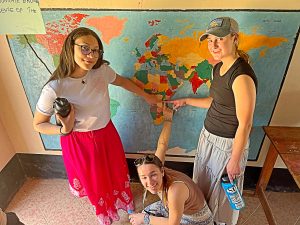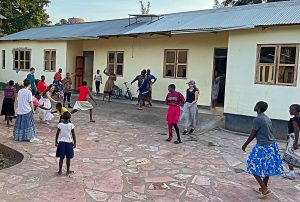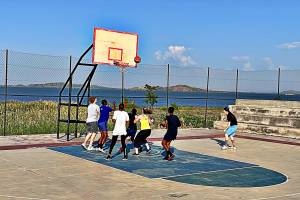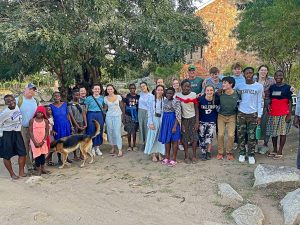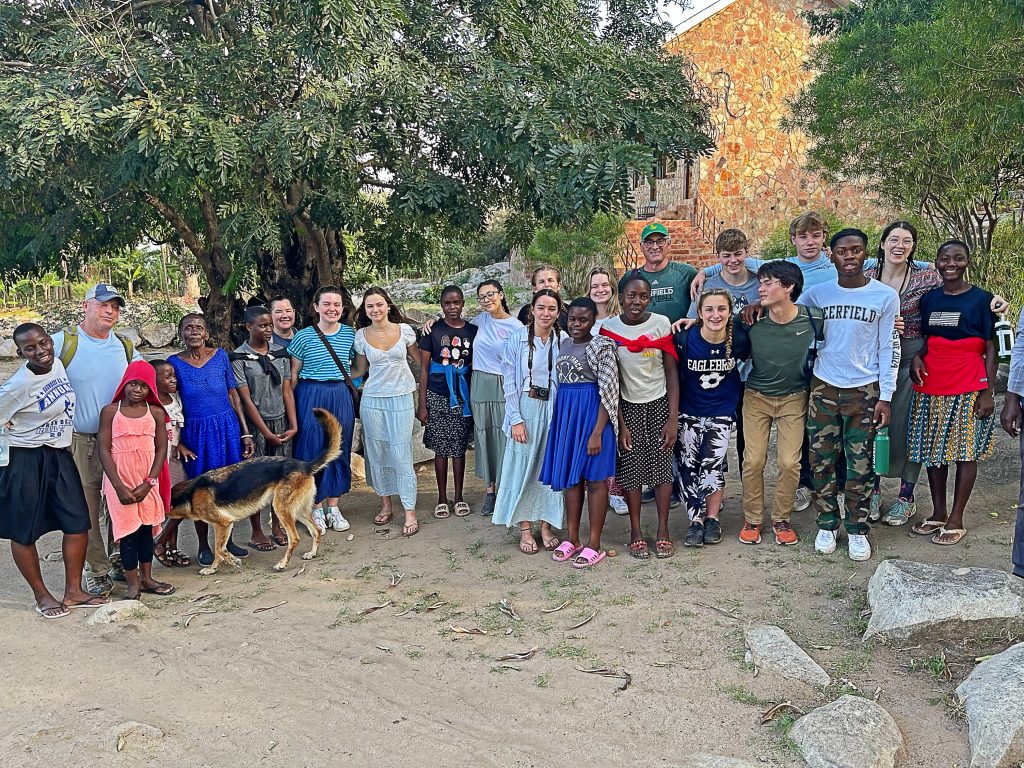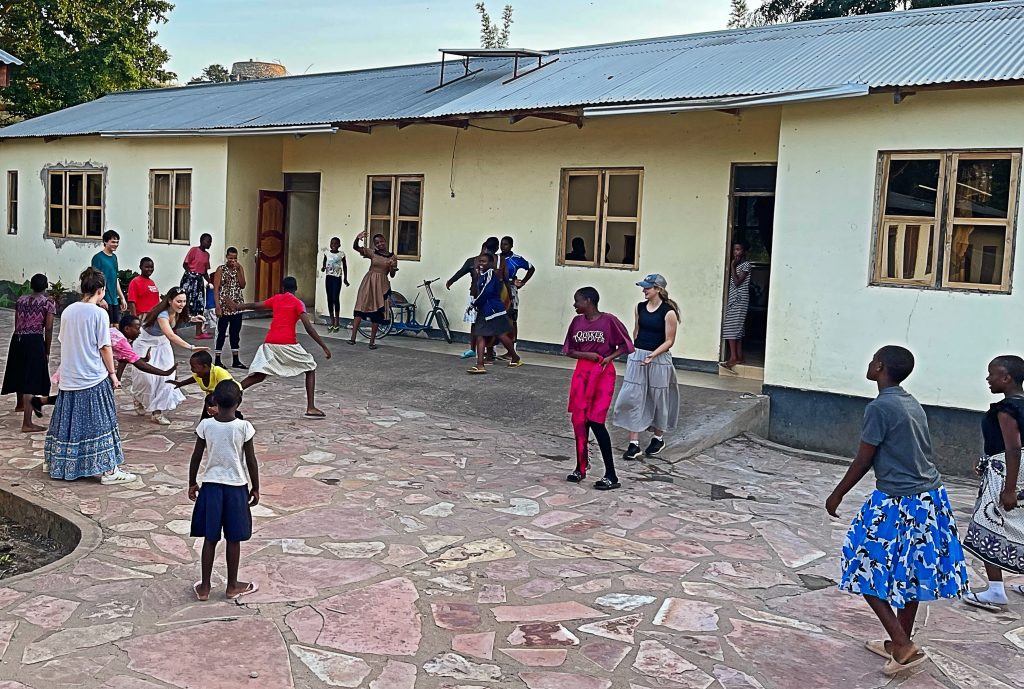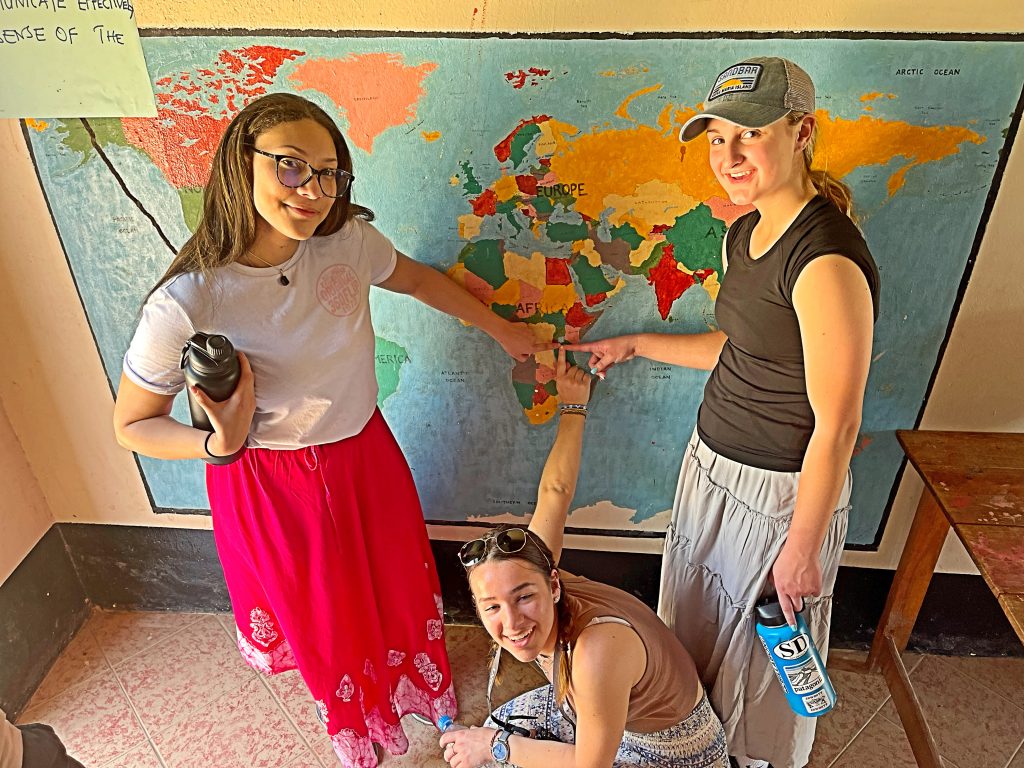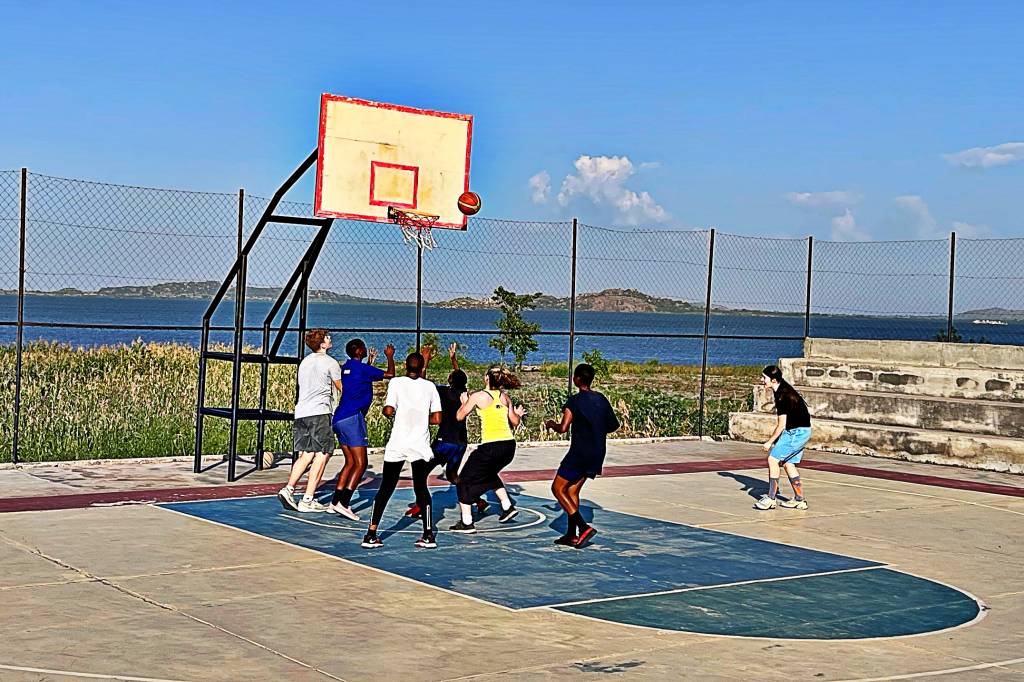Avery Izzo ’24, explains how her perspective on language as a barrier has changed, rather than being a “serious challenge,” language “can serve as a means of genuine connection” and “to make life-lasting connections.”
It was 7 am along a dirt road in Kitongo, Tanzania. The orange sun rose above a green-spotted hill in the distance. Sweat poured down my forehead like rain. I was running out of oxygen on a morning run with Mr. Emerson and a few other trip members. During our journey, bikes, motorcycles, buses, and people traveled past us—all on their way to school and work. “Habari za asubui! (Good morning)” they greeted us. “Habari! (Hello)” we called back, gasping for air. Minutes and miles passed. We heard more of the same. “Hello! Habari!” Friendly greetings from strangers like these have characterized our daily interactions. Wherever we go, we encounter a taste of both Swahili and English.
My perspective on language has changed even after a few short days here. Before arriving in Tanzania, I viewed differences in language as a barrier between people. For this trip, I anticipated a large language barrier as a serious challenge–one that might prevent me from forming new friendships. This is my first time traveling internationally, so I wasn’t sure what to expect. Would the majority of Tanzanians speak any English at all? How would I be able to communicate with others who didn’t speak the same language as me? These questions proved to be exaggerated, in fact, the opposite of the truth. Language, particularly the sharing of different languages, can serve as a means of genuine connection. To my surprise, English did not disappear. Rather, it remained constant throughout our time in Tanzania. I was surprised to learn that all of the classes at Main Springs are conducted in English. “We speak English” was written on the cafeteria wall in the midst of other school rules such as “We do not steal” and “We treat others with kindness.” The entire library was filled with English books such as Harry Potter and The Grapes of Wrath. Many of the girls conversed with us fluently. We all bonded over our common desire to sing American lyrics from Miley Cyrus and Taylor Swift.
Despite our shared familiarity with English, Swahili remained a prevalent part of our experience. Today, well after our morning run, we had our first Swahili lesson. CJ, our instructor, began the lesson by explaining that Swahili originated as a form of mutual communication between the Arabs, Germans, Portuguese, and Bantu and has since transformed to unify Eastern Africa. After we fumbled through some phrases, CJ related the shared difficulty everyone experiences learning new languages. CJ revealed he knows more than five languages. Laughing at our impressed expressions, he explained that this is common in his country. Many Tanzanians have to learn at least four languages—English being their fifth. Although Swahili is the national language, there are over one-hundred ethnic groups–each with their own distinct mother tongue. Many Tanzanians speak their native language at home, while at school, a majority of students are required to learn Swahili and English. Additionally, some students travel far for school, which requires them to learn additional mother tongues.
Both historically and today Swahili is a language of connection, not isolation. I’ve come to learn that language isn’t the only form of connection. As humans, we bond in diverse ways: through our eyes, body movements, and gestures. In Tanzania, we’ve experienced kindness. Clearing plates for one another. Waving. Hugging. Dancing. Language can be a bridge or a divider. Tonight, we walked to the village to share a meal with Mama Bebe and her family. As we prepared to leave Mama Bebe’s house after a wonderful meal of rice, beans, cabbage, plantains, chicken, beef and watermelon, we exchanged hugs. “Osikuwema (good night)” were the words exchanged. Without many words, we had come to a mutual understanding. We were grateful for the time spent together over food, games, and many laughs. No matter what language we’ve encountered, there is always the ability to make life-lasting connections.
